Want to give that new spark to your home with a chandelier? What are you waiting for? This article will hold your hand, from the point of getting what a chandelier basically is up to the point of picking the best for your space. We'll go through the different styles you can choose from, the materials that work the best, and finally, how to match a chandelier to your home's vibe. We'll also fill you in on where to hang those lights and share tips that'll get 'em up there. And if you're wondering whether you need to get in on all that wiring business, or how you'll keep your new lights looking clean and bright, yeah, we have answers to those frequently asked questions, too.
What is a Chandelier?
A chandelier is a decorative light fixture suspended from the ceiling. It usually has several arms or branches, often with several light bulbs. In general, it is created in quite an elaborate style with tiny details made from glass or crystal prisms that diffuse light as refracts onto them, giving a sparkling effect in the room. There are many different chandelier sizes and styles: from classical, traditional designs with an abundance of metalwork and embellishments to sleek and modern models with simple lines and touches of little embellishments.
Different Styles of Chandeliers to Choose From
You have decided to light up your life with a chandelier. Great choice! But before you dive in, let's talk about the different types available. Here's a simplified breakdown of the most common styles you'll come across during your search for the ultimate overhead stunner.
- Crystal Chandeliers: These are the classic, glamorous ones that sparkle a lot. Think of shiny bits hanging down that catch the light.
- Drum Chandeliers: Imagine a lampshade around the lights. They give off a cozy vibe and have a more modern look.
- Globe Chandeliers: These guys are shaped like a sphere and can look either super modern or kinda retro depending on their design.
- Shaded Chandeliers: Picture a chandelier where each light bulb has its own little lampshade. It's a more subtle kind of fancy.
- Candle Chandeliers: These mimic old-fashioned candle chandeliers without the wax mess. They're great for a rustic or historic feel.
- Sputnik Chandeliers: Named after the satellite, these have arms shooting out all over and are perfect for a mid-century modern room.
- Tiered Chandeliers: Like a cake with layers, these have levels of lights stacked up. They can be really grand and are often seen in big, open spaces.
- Linear Chandeliers: Long and straight, these work well above things like dining tables or kitchen counters.
- Antler Chandeliers: Made to look like antlers, they bring a bit of the outdoors inside. They go great with cabin-style decor.
- Beaded or Wood Chandeliers: These use beads or wooden elements for a more bohemian or natural look.

Now that we've walked through the showroom of chandelier types, remember: the right one for you is going to mesh with your space and reflect your personal style. It's like finding a new friend who instantly gets you. So take your pick based on what catches your eye and what feels like home. Whether it's crystals that make your heart skip a beat or wood and beads that speak to your laid-back soul, there's a chandelier waiting to make your space shine just right. Go ahead, choose the one that clicks, hang it up, and let that chandelier do what it does best: make your home glow.
What Material is Best for Your Chandelier?
When you're in the market for a chandelier, it's not just about the shape or size – what it's made from is a big deal, too. The material not only dictates how your chandelier looks but also how it throws light around the room and how much maintenance it'll need.
Glass Chandeliers
Glass chandeliers are incredibly classic in their beauty. They diffuse light with clarity and sparkle that is simply unparalleled, providing the ambiance with a taste of refined glamour. It could be precision-cut lead crystal or Murano glass; chandeliers of this type resonate with timeless sophistication in their surroundings.
Metal Chandeliers
From wrought iron's rustic charm to polished nickel's modern shine, metal chandeliers are resilient and come in a variety of finishes-bronze, gold, chrome-and not only fit seamlessly into nearly any décor style you could fathom but leap right out as the Swiss Army knife of chandeliers.
Wood Chandeliers
Wood chandeliers. Make a connection to nature with these rough and rustic or sleek and sculpted-a reclaimed look or truly contemporary in design, wood chandeliers are the way to bring a touch of natural beauty to the décor of your residence.
Fabric Chandeliers
Fabric shades add a soft addition to the structure of a traditional chandelier and gently diffuse the light it radiates, making a warm and friendly room. Be it silk or linen fabric, another texture layer could be added that way, and it could add a cozy tactile element to your overhead lighting.
Beaded and Shell Chandeliers
Beaded and shell chandeliers throw in a fun artisanal kind of vibe: They can be either laid-back with wooden beads or super beachy with shells, making them perfect for easy, nonchalant lounges or sunrooms.
Crystal Chandeliers
Arguably the quintessential material for a chandelier, crystal is all about dazzling brilliance. Inescapably sparkly when lit, crystal chandeliers add a beguiling spectacle of light, upping the glam quotient of any interior they grace-all on their own.
Whether you want to create an atmosphere that's crisp and reflective, cozy and diffuse, or one that's got an earthy feel, there's a material out there perfect for your vision.
How to Pick the Perfect Chandelier for Your Space
Assessing Your Room Size
When you're sizing up a chandelier for your space, think of Goldilocks-you want one that's just right. A snug little reading nook won't do well with an oversized chandelier; it'll feel like it's trying too hard. Instead, reach for a mini chandelier that'll cozy up the space without crowding it. On the flip side, if you've got a room that's got more square footage than a small country, you'll want to bring in the big guns. A large, tiered chandelier can make a grand statement and fill the void without getting lost.
Reflecting Your Style
Your chandelier should be a reflection of your home's fashion sense. For homes dressed in traditional garb, a chandelier with timeless crystal or glass elements and ornate metalwork will fit like a glove. If your home struts a modern edge, aim for simplicity-a chandelier with clean lines and a minimalist design will synchronize with your decor like harmony in music.
Setting the Mood
It's all about the vibe you're going for. Fancy a cozy dinner party? A chandelier draped in fabric shades offers up a warm glow that invites guests to relax and enjoy. But if making a splash is more your style, a crystal piece can throw light patterns around the room, turning your dinner into a sparkling soiree perfect for lively conversations.
Practicality Meets Style
If you're looking to illuminate your practical spaces, such as above kitchen counters, where you chop veggies and read recipes, then functionality takes the spotlight. A linear chandelier can cast an even light across your workspace, marrying utility with elegance. In rooms that serve multiple purposes, a chandelier with a dimmer switch gives you the versatility to crank up the brightness for game night or dial it down for a romantic evening in.
Shop Our Premium Lighting Collection
Explore our hand-selected bestsellers featuring crystal chandliers, pendant lights, wall scones and authentic alabaster stone:
What Are the Perfect Spots for Your Chandelier?
When it comes to hanging a chandelier, it's not just about plunking it down in any old place – location is key.
Dining Room
When it comes to your dining room, the perfect spot for your chandelier is a no-brainer-it should float gracefully above the center of your table. It's more than just lighting; it's a statement piece that ties your gathering space together. Measure carefully to ensure it hangs neither too high nor too low but just right to illuminate memorable meals and conversations.
Entryway
Your entryway deserves a warm welcome, and what better way to achieve that than with a chandelier? To find the perfect spot here, look for the natural focal point of the foyer-often directly in the center or above the staircase, offering a balance between height and visibility that draws the eye upward and inward.
Bathroom
For an unexpected touch of sophistication, consider hanging a chandelier over your bathtub. This spot is all about personal luxury. It should be positioned so that it's not a head-knocker when you're stepping in or out but perfectly situated to dazzle as you indulge in a bubble bath.
Bedroom
In the bedroom, think of your chandelier as ambient or mood lighting. The perfect spot might not be smack dab in the middle of the ceiling but rather off-center, perhaps over a reading nook or anchoring one side of the room to create a sense of balance and serenity for your private retreat.
Living Room
Your living room chandelier should claim a prime location where it can bathe your entire seating area in inviting light. Often, this means placing it in the heart of the room, just above the coffee table. Ensure it speaks to the size of the space-not too diminutive, yet not overwhelming either.
Unexpected Places
Think outside the box and consider brightening unconventional spots like walk-in closets or home offices with a small chandelier. Here, you'll want to place it in a functional area where it can add both light and a dash of grandeur without hindering movement or practical use of the space.
There you go, picking out the perfect spot for your chandelier doesn't have to be tricky. Whether it's front and center in the main living spaces or adding a bit of flair to the often-overlooked spots, a chandelier can be a stunning addition just about anywhere. After all, rules are made to be broken, and in your home, you make them.
How to Properly Install a Chandelier: A Step-by-Step Guide
1. Prepare
First things first: safety and preparation. Turn off the power into your dwelling's major electrical panel to avoid electric shock. Acquire all the tools you'll need for the job: a ladder to help you reach the top, screwdrivers, wire strippers, a device to test the voltage, and perhaps a drill to make some new holes. It's also good to be with someone who can hold the ladder and take care of the chandelier.
2. Proper Support
Chandeliers are heavy. Be sure the ceiling junction box is strong enough to support the weight of a chandelier. If it isn't, you'll need to install a new box that's rated for your chandelier. You don't want your ceiling to cave in or the fixture to fall and cause hurt.
3. Making the Connections
Carefully pair up your chandelier's wires with those coming from your junction box so wire colors match: black is always hot (power), white is always neutral, and finally green or bare copper to green or bare copper for the ground. With each match, twist a wire nut onto the ends, then add electrical tape around the wire nuts. This is another detail-oriented aspect of a lighting installation project.
4. Determining the Ideal Drop
How high you hang your chandelier isn't just a decorative decision, it's a practical one. Thirty to thirty-four inches from the bottom of the chandelier to the tabletop is generally appropriate over a dining table. In an open area or foyer, hang the chandelier so the bottom is at least seven feet above the floor.
5. Secure and Test
Carefully lift the chandelier in the air and make it level before attaching it to the mounting bracket on your junction box. Now that we have everything in place, head back to the main panel and restore power to the unit. Test to be sure all is working perfectly with the voltage tester, then turn on the switch and watch your room light up.
6. Fine-Tuning for Perfection
After installing it, you can adjust it if the chain or rod is hanging too much or too little: many models support somewhat soliciting a couple of final comments in admiration of your work while at it, ensuring all the while it is leveled and straight because with chandeliers, sometimes just a slight adjustment can make all the difference in the world.
Find Your Perfect Chandelier Today
Picking the perfect chandelier is about finding a balance between how it looks and works in your space. Whether you're drawn to the shiny elegance of crystal or the earthy feel of wood, the key is to select a style that feels like a natural extension of your home's decor. Think about the size of the room and the vibe you want to create-do you want a cozy corner or a grand statement? And don't forget, installing it safely and keeping it clean are just as important as the design. By considering these simple but crucial tips, you can light up your living space with a chandelier that fits just right and makes your home shine.
Frequently Asked Questions
Q1: Can I install my chandelier without hardwiring?
Yes, you can with a few options:
- Plug-In Kit: Convert the chandelier to plug into a wall outlet.
- Swag Style: Hang the chandelier and drape the cord over to the wall and down to your outlet.
- Battery-Powered: Buy a chandelier that runs on batteries.
For any of these methods, make sure to check if they meet safety standards or ask an electrician for advice.
Q2: How do I clean or maintain my chandelier?
Keep it simple and safe:
- Turn Off Power: Make sure the light is off before you start cleaning.
- Regular Dusting: Use a soft cloth or duster to gently wipe away dust.
- Wet Cleaning: Mix warm water with a bit of soap, dip a soft cloth in it, wring out well, and wipe down the chandelier parts. Don't let electrical parts get wet.
- Crystal Care: For glass parts, use a mix of alcohol and water, spray lightly, then dry with a soft cloth.
- Bulb Change: Replace old bulbs when needed, preferably with long-lasting LEDs.
- Check Fixtures: Occasionally tighten any loose parts to keep the chandelier secure.
Always handle your chandelier gently, especially if it has delicate parts. Regular care keeps your chandelier shining bright.

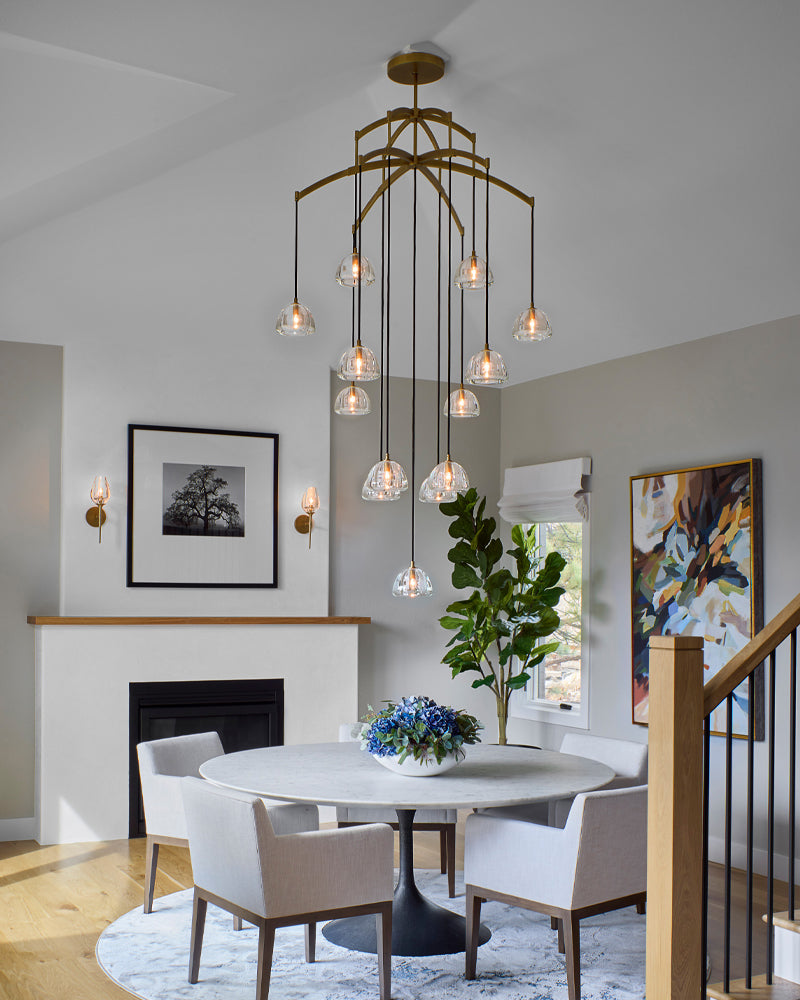
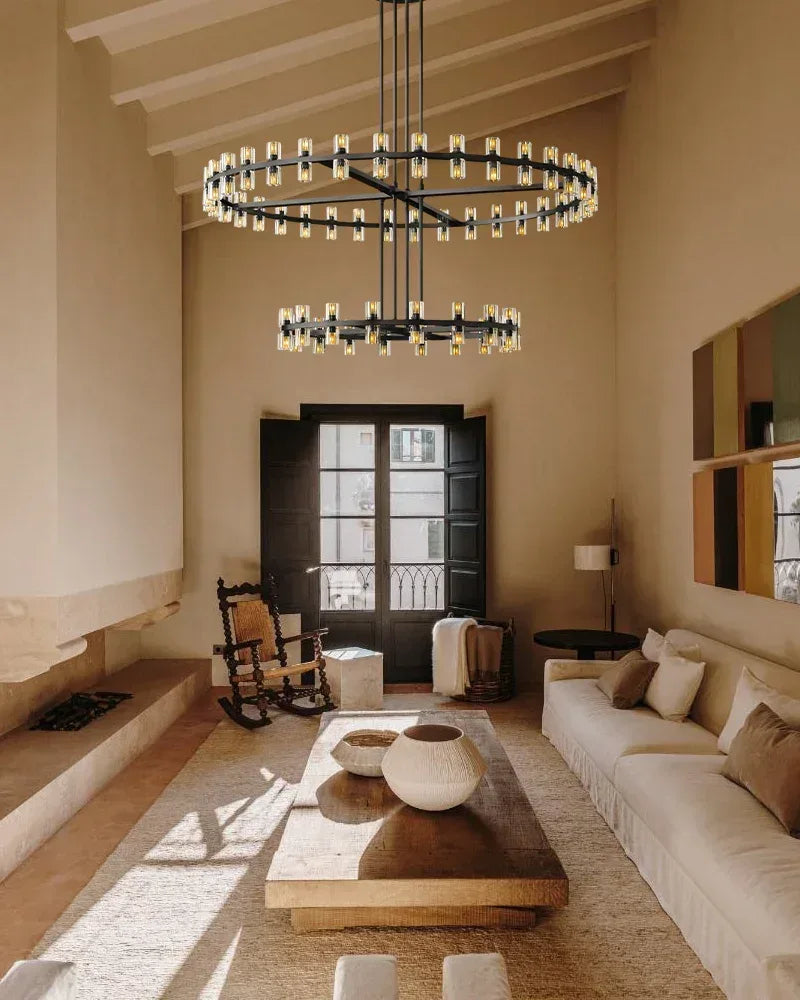
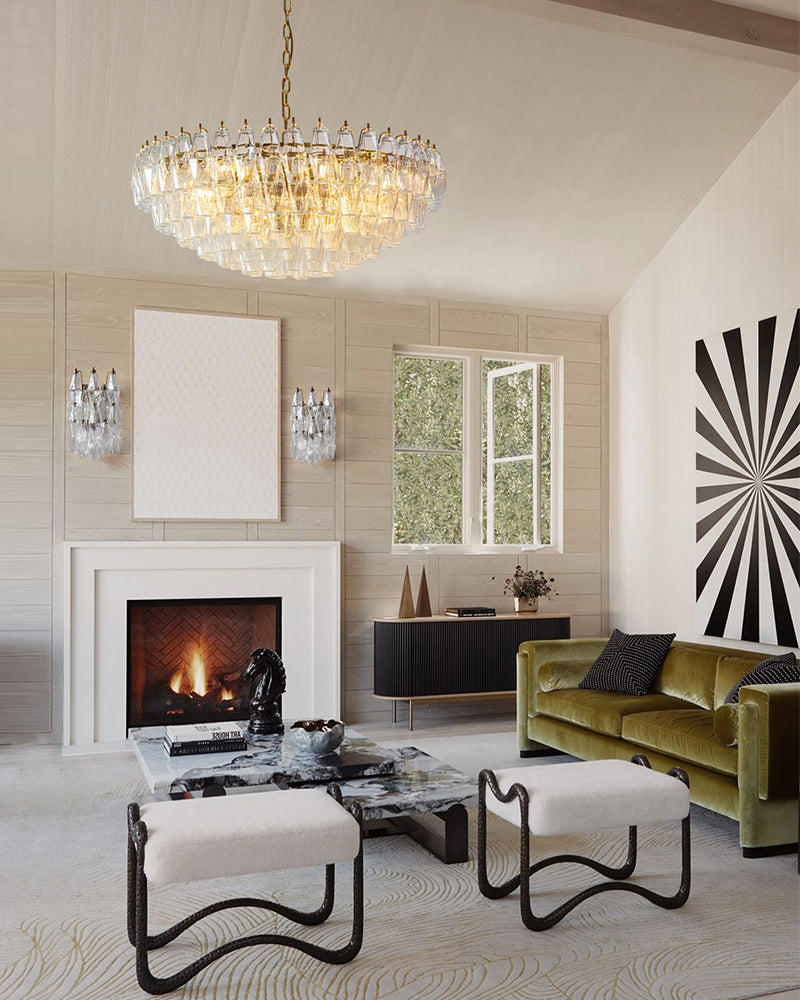
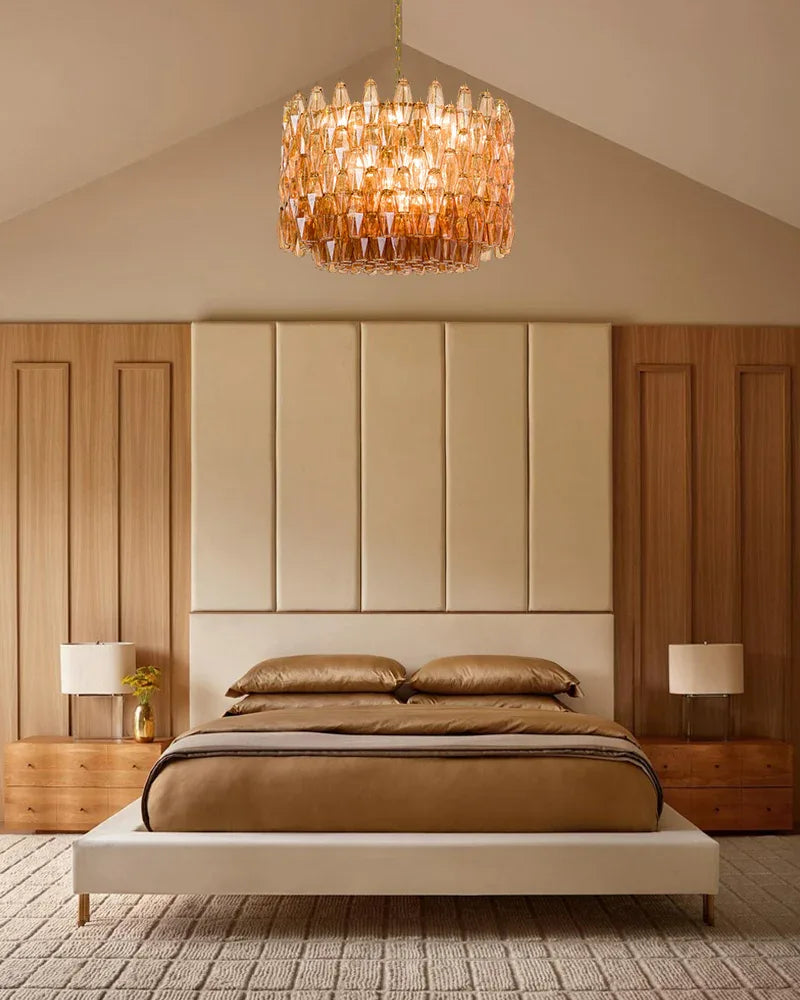
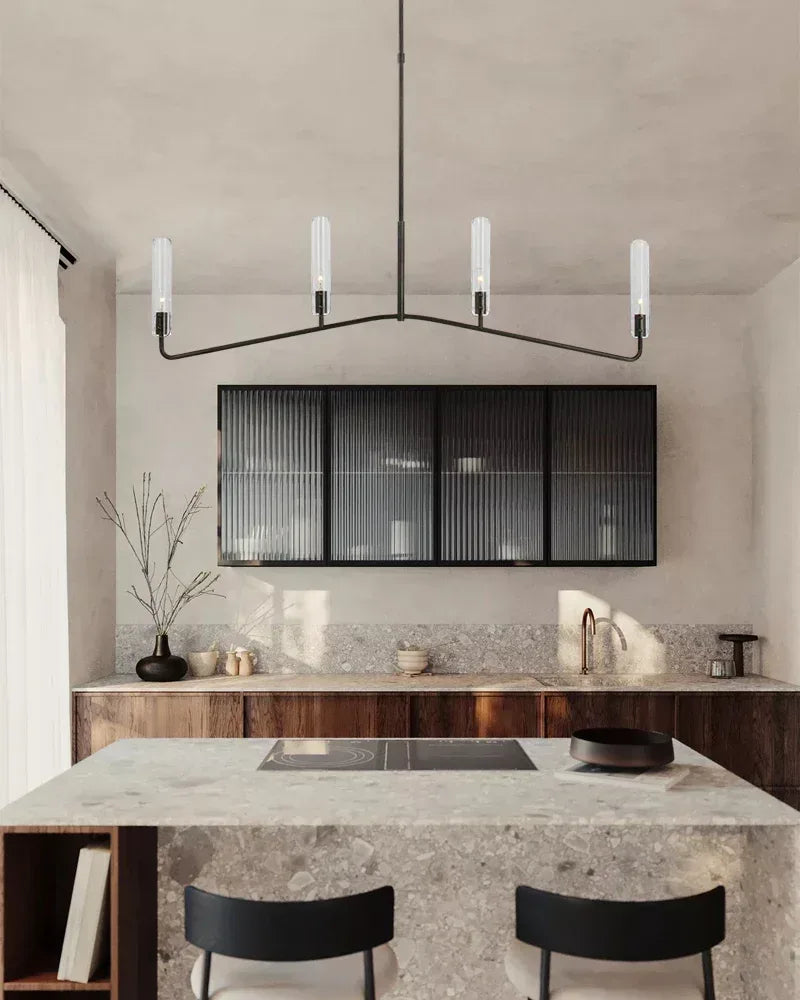
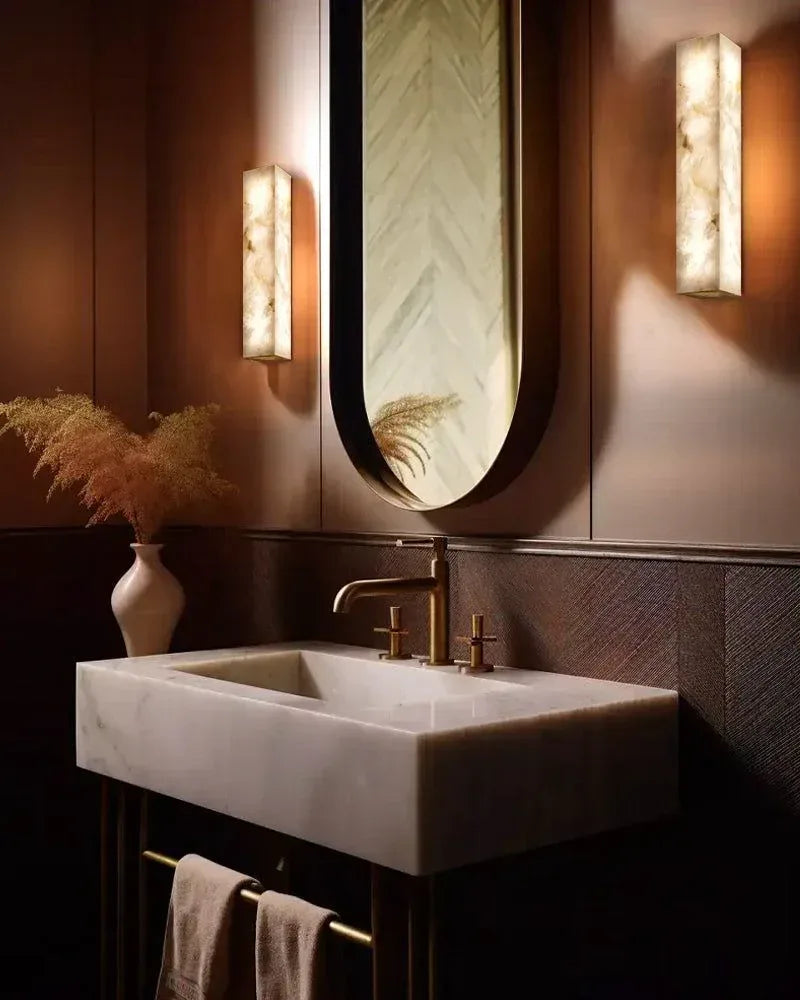
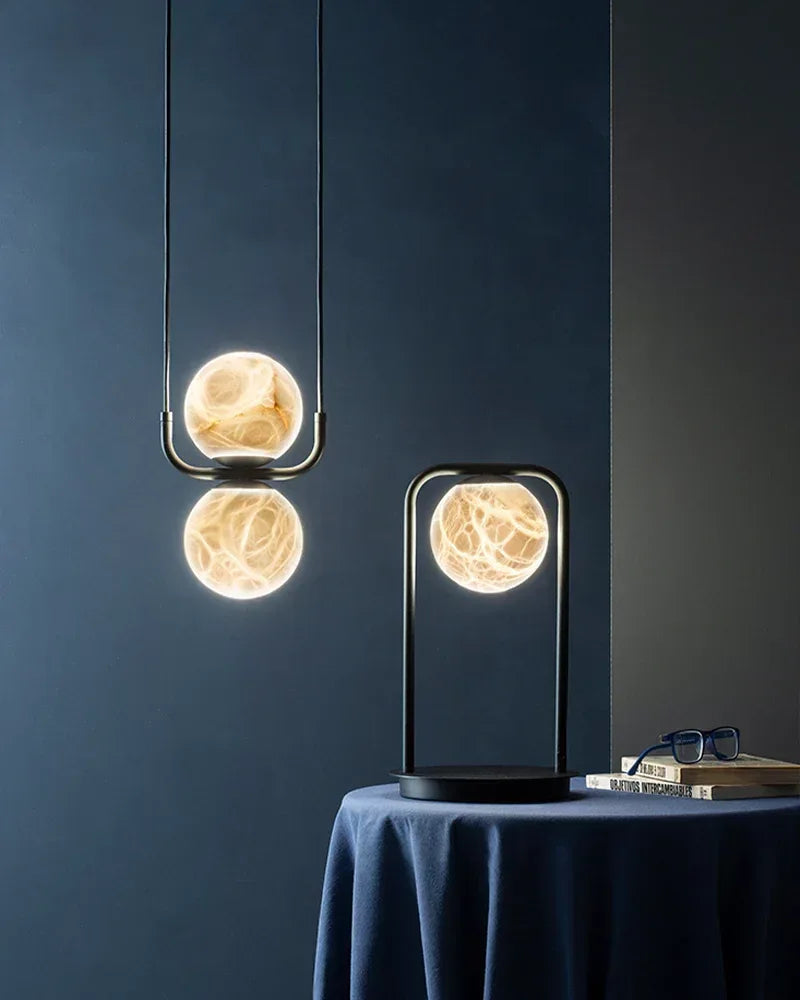
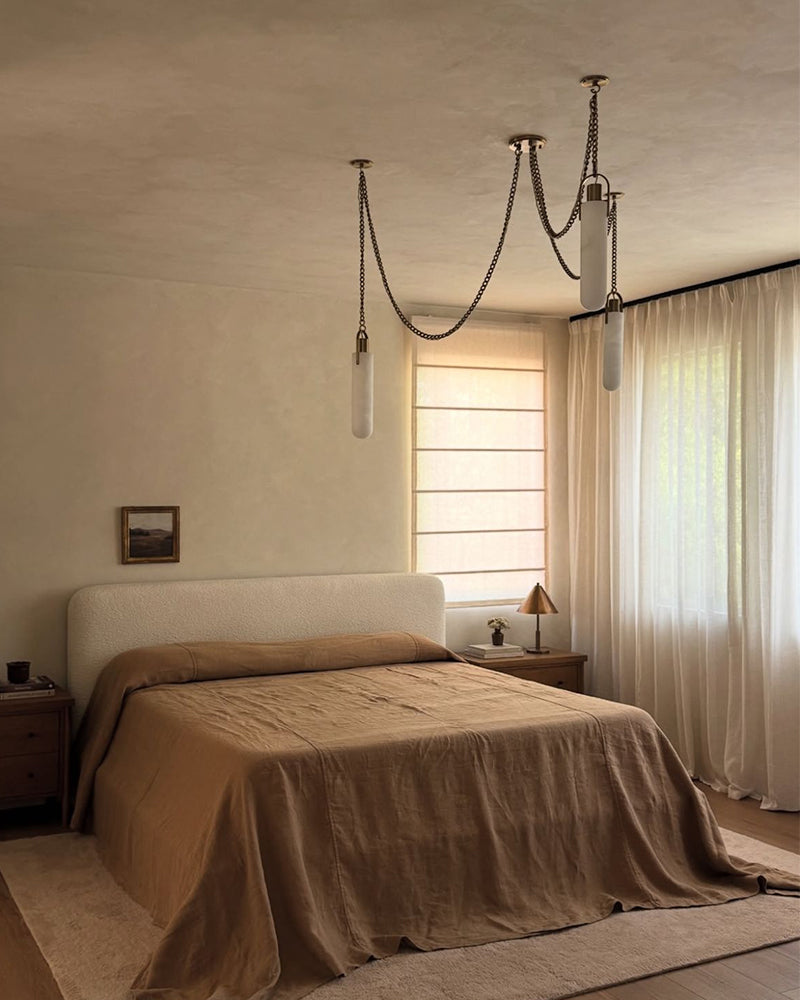
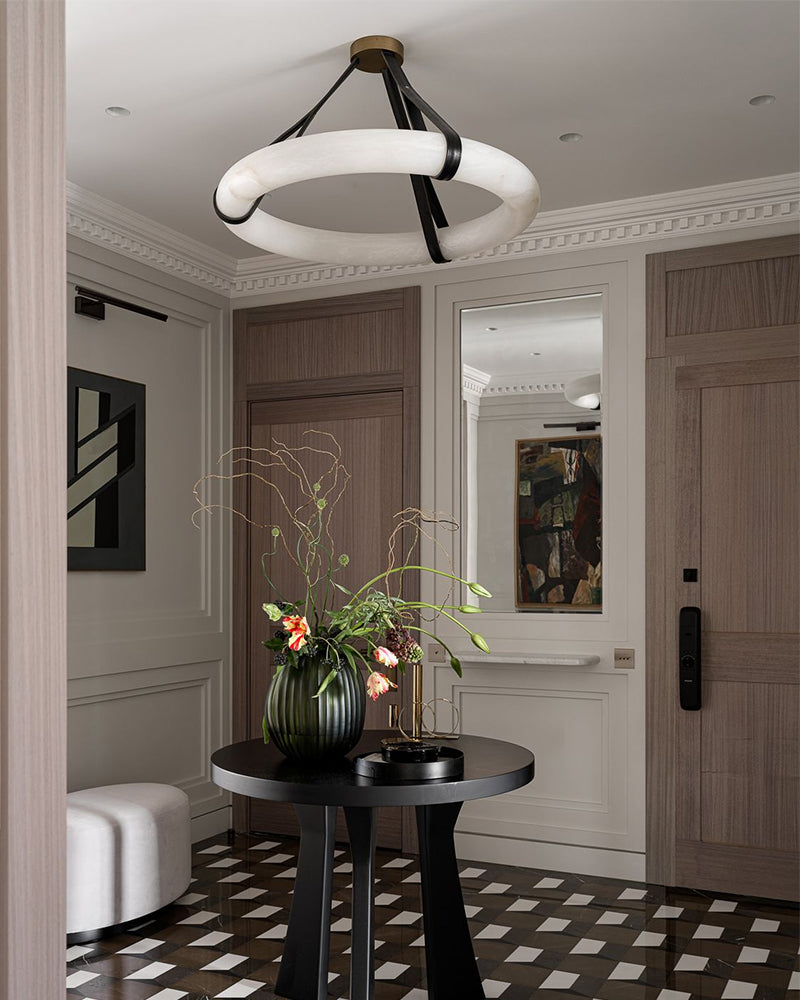
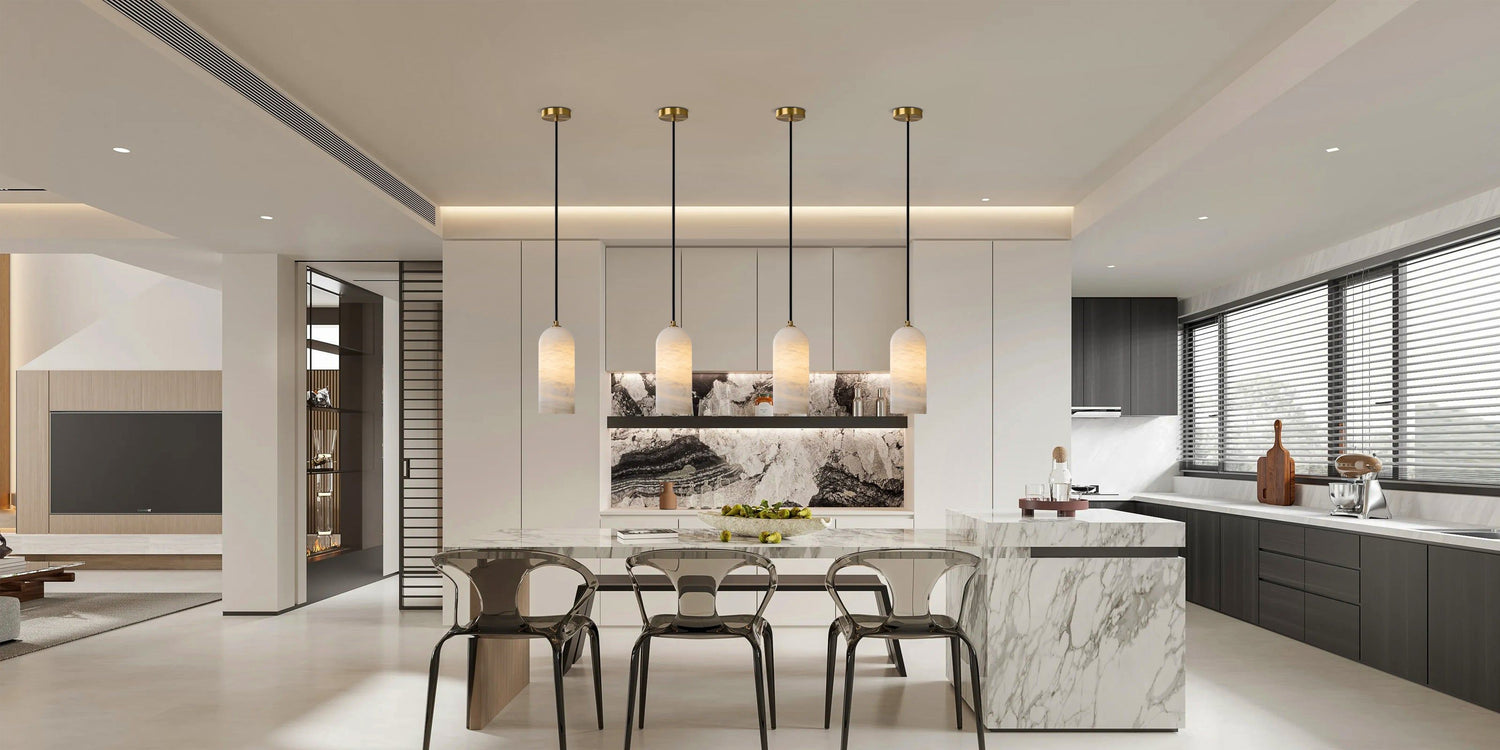
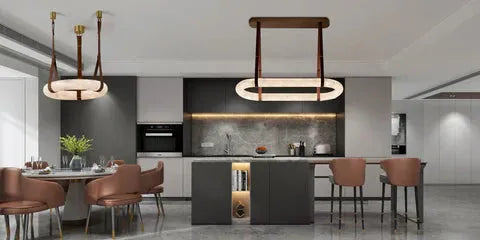
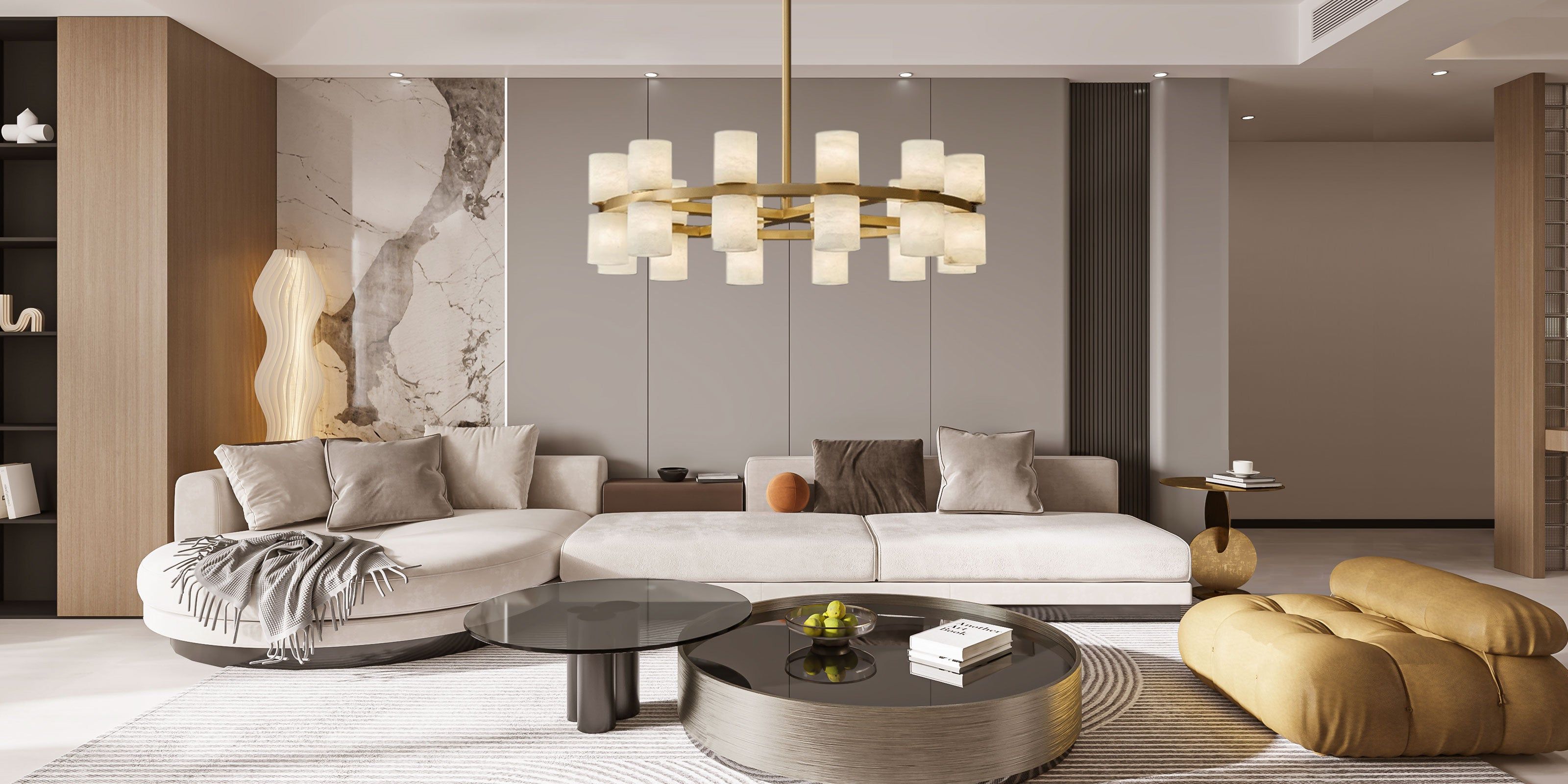
Leave a comment
This site is protected by hCaptcha and the hCaptcha Privacy Policy and Terms of Service apply.